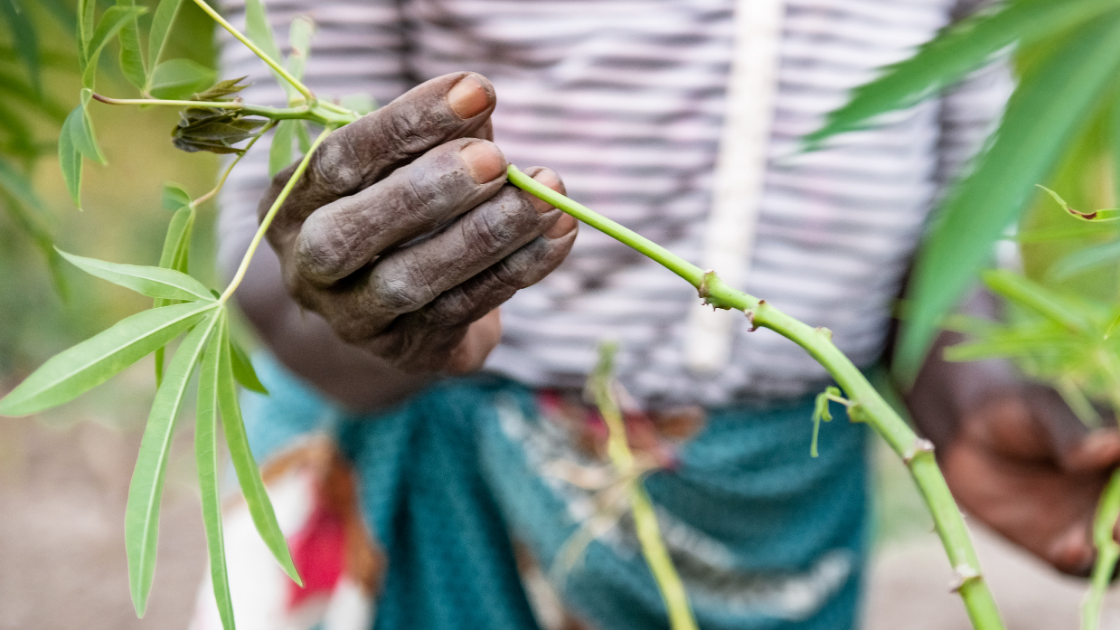
Follow Up: November Florida Food Forum
Black Farmers Matter
If you were unable to attend the meeting, the full presentation is available to watch online here.
To keep the conversation going, please visit our forum on Black Farmers Matter here to add your thoughts and comments.
On Friday, November 20th, the Florida Food Forum on "Black Farmers Matter" featured guest panelists: Tanikka Watford Williams, Executive Director of The Moore Wright Group, Angelique Taylor and David “Kip” Ritchey, Owners of Smarter By Nature LLC, and Carla Bristol, Collaboration Manager at St. Petersburg Youth Farm. Incoming Chair of the Florida Food Policy Council, Erica Hall, moderated the event.
The first presenter was Tanikka Watford Williams, who began her presentation by explaining the mission of the Moore Wright Group and her background.
“The Moore Wright Group (TMWG) is a 501(c)3 nonprofit organization. Our mission is to break the cycle of poverty, abuse, and abandonment in the community by providing hope. Our vision is to create communities where everyone can thrive.”
Tanikka explained how she was the daughter of Black farmers, and that they had instilled in her the importance of, “community, our food system, and of us.” Thus, it was important that the Moore Wright Group was founded with the principles of helping people thrive.
“I am also the granddaughter of a sharecropper,” said Tanikka, “a sharecropper from North Carolina. My grandmother also had a small, what she called “garden” that was 20 acres that helped instill in me the importance of growing your food, helping your community with that food, and how education and everything around us can help us grow.”
Tanikka’s later experience starting and owning a produce distribution company helped her learned about the many holes and issues that existed within the system and she began to work with other organizations to bridge those gaps. “I recognized that a lot of food that was coming to our facility, wasn’t coming from Black farmers. We learned that a lot of things around us, didn’t allow for our farmers to be able to thrive.”
Tanikka explained that currently Black farmers make up 1.2% of all farmers, 1% of all Ag sales, and that the average age of Black farmers is 61 years old, however, the average age of all other farmers is 54 to 57. “So, the difference in those years creates a lot of different issues for our producers and our processors, which also adds into our Ag sales.
Another problem is that only 62% of Black farmers have access to Internet. “That limits access to our farmers for information and resources. Especially in times like now when we’re all virtual. This leaves our farmers to a very much so disadvantage that also doesn’t help our farmers to be able to increase sales and access the avenues to increase those sales.”
History Leads to Understanding
“A lot of people don’t know the history of how some of our extension services in the USDA were formed,” Tanikka said. She explained about the history of George Washington Carver who went to Tuskegee, Alabama, and came up with a revolutionary way of helping farmers.
“He had the idea of beginning educating and thought, how do we get our farmers the information they need to be able to produce more, have crops on consistent rotation, and how to actually help our farmers not just to be consumers but to be producers and to supply to consumers? So, the idea of a moveable school came about.”
Tanikka said that the reason she presents this story is because it helps set a framework for a lot of the mechanisms that help farmers be better producers through the USDA in their farm programs. Yet, even now, a lot of those services do not touch and help the people they were set up to be able to help.
One example that discusses a failure of the USDA is Pigford v. Glickman. This was a class action lawsuit against the USDA, citing racial discrimination against African-American farmers in its allocation of farm loans and assistance between 1981 and 1996.
“A lot of people have conversations about Pigford, and they want to say that Pigford existed to be able to help farmers now. That information is incorrect. Pigford was set up to right the wrongs of the past.” Tanikka explained. “Oftentimes Black farmers were not given loans; according to the actual lawsuit it said that Black farmers loans were processed 3 times slower than any other racial makeup. And also, a lot of the loans that were given, farmers didn’t actually know that they had those loans. So, then the USDA would come back and say that they had defaulted on their loan and then take the land. So, this money was to right the wrongs…So I like to talk about that because often the conversation is ‘Why doesn’t that create change now?’ and ‘How does that not set Black farmers up for a part of the platform right now?’”
The Justice for Black Farmers Act
Tanikka mentioned one piece of legislation that is currently going through Congress: the Justice for Black Farmers Act. “A lot of components of this act also help with some of the gaps with the land being stolen and access to education and a lot of different component. Will this speak to everything, no, but the point of it is to be able to help so that we have access to land and to be able to grow and to be able to help our farmers to succeed.”
The second presentation was given by Angelique Taylor and David “Kip” Ritchey, who started with an introduction about their reason for farming and starting Smarter By Nature.
“We are a small-scale regenerative farm located in Quincy, Florida, and our mission is to facilitate sustainable relationships between people and the natural environment by providing fresh food and education to the local community,” said Angelique.
Located in a food desert, Angelique and Kip decided to start their business in 2017 to address the lack of fresh food in our community. “We wanted to be an asset to our community by learning different growing methods that would not only feed people but also restore the natural environment. We grow for our farmers market and we are also certified permaculture designers so we use different growing methods that would help feed the soil as well as grow healthy plants.”
Agriculture is Changing
Kip explained that agriculture as a whole is changing. “One of the things about agriculture is the excessive use of chemical fertilizers and the continuous tilling which is a practice that’s been going on since the industrial era of agriculture…As regenerative farmers we look at these current issues and we face them head on with our own practices of no-tilling and the use of natural and organic fertilizers and pesticides.”
A lot of young farmers are at the forefront of addressing these issues in food production. “This is why permaculture, regenerative farming, and sustainability, these words are becoming new trends but they are something that is a huge necessity for our space—not only to think about food for your community, but to think about healing the earth in the process,” Kip said.
Kip noted that on their farm they like to use cover crops. “People talk about this, like Tanikka said, George Washington Carver helped establish the use of cover crops in the large-scale agriculture, but it’s been something that’s been veered away from that we’re just getting back to.”
Serving the Community
Angelique and Kip founded Smarter by Nature in 2017 and currently service the Tallahassee community. Angelique has a background in Environmental Science and her passion for growing came from a love for the environment and wanting to help restore and protect sustainable systems for the future generations to enjoy. Kip’s background in Sociology and agreement with Angelique’s thinking about the earth and about food systems motivated them to create Smarter by Nature.
Although their farm is 5 acres, they are currently cultivating 1 acre of space and engaging with the surrounding community both in person and online. “We have volunteers come out every Friday and Sunday from 9 to 11am, and they get hands on experience in terms of what we do,” said Kip. “We are learning every day. One of the values that we bring to our online audience is that we share our mistakes that we make along the way, and we share the lessons that we learn, not just the good food that we grow, but we show our challenges. This is something that we think is highly important today is to demystify the agriculture sector and to make it something that is accessible for people,” Kip noted.
Angelique added, “We also look to inspire others to start growing where they are, because you can be regenerative gardeners on a small-scale and up to a large-scale. There are different practices that can be adopted by anyone and really everyone across the world. So, what we do is share our experience and just share our journey.”
Improving through Policy
“I would say that one of our biggest challenges that we face is access to equipment and infrastructure,” Kip said. “When we started our business, we started it urban gardening in smaller spaces but we decided that we wanted to grow more food to help feed our food desert here in Tallahassee.”
When it comes to policy, there were two types of legislation that they would like to see implemented. “We believe that there should be a mandatory class on food education from elementary to high school. Food is such an underrated core aspect of culture. It’s something that everyone has to engage in all the time. And we need new entrepreneurs. Food is so vast and it’s not only just farming, it’s also processing goods as well. It can happen on a small-scale and on a large-scale. And I think that just how we study math, science, reading and writing, agriculture should be a core part taught in institutions,” Kip explained.
The second policy recommendation was that at least 20% of food used in institutions be purchased from local farmers within a 200 miles radius of the given institution. “There is a huge disconnect between institutions and communities. We live in Tallahassee, we have Florida State (FSU) and FAMU, two huge institutions with over 20,000 students but they have no idea about what’s going on in the community around them. So, to be able to say that the food served at the institution comes from farmers in that area, and for any given city, we think that would be a huge step towards progressing in the food system.”
From there, Carla Bristol introduced her background and current projects working with the St. Petersburg Youth Farm.
“Unlike the previous panelists I was born in South America, in Guyana, grew up in Brooklyn, NY, and moved to St. Petersburg in 1996. When I got into this work, I said at best I am not a gardener, but I know that I can lift and provide visibility and to this space and to this conversation,” said Carla.
The St. Petersburg Youth Farm program was established in 2019 with the goal of addressing the issue of food scarcity in the South St. Petersburg area. Another goal of the program was to create economic workforce development for youth. So, all of the youth participants are paid a salary. In fact, in the last 17 months, the program has hired over 35 young people.
The program does a lot more than teach about growing food. Carla explains, “For youth development, which includes everything from character building, we teach Black history, we teach entrepreneurship, a heavy focus on leadership, but I would be remised if I didn’t say that one of the things that we also focus on and that we put as a cornerstone and a priority is mental wellness. Especially with everything that’s happening today, we were sharp in being able to pivot to online. But the beauty of it is that we also grow food.”
Carla continued, “One of the things that we didn't want to do was to just indoctrinate knowledge to our young people but actually have them experience how to build this, and how to understand and respect the soil we are growing in.
The site that the program was assigned is located behind a community center that is right in the heart of what is known as Midtown in St Petersburg. “This .83 acres of land for us to grow food on, we are now past the soil remediation phase, we are past the tree removal phase, and now we are going into full-scale “Let's start building our soil!”
The program will be erecting a greenhouse that will grow microgreens and with the support of a grant from the Ford Foundation partnered with USF, they will soon be growing hydroponically.
Eventually, Carla said that the farm location will be a space for not only growing, but education, which will include workshops and classes, and more importantly, it will become a space for the community.
Changes in Local Policy
“Initially when this program began, we would not have been able to sell at the farm location. We would have had to grow the food and we could literally sell at the parking lot next door at the rec center. And some of the policies in our city that are shifting are going to allow us to be able to sell on site at the farm,” said Carla.
“Part of what we're focused on right now is actually a huge effort and community survey. It's a big effort to find out what kind of things the community like would like. What are you buying and what do you wish that you could afford to buy? The effort with the greenhouse, 30% of what we grow in the greenhouse will be donated back to the community efforts.”
A policy that would enable the residents, community gardens and farm spaces to sell food where they grow would indeed have an impact on this project.
Carla also noted that increasing healthy foods in the corner stores in the area where people already shop would also have a great impact on the local community.
Erica Hall wrapped up the presentation portion of the forum by explaining why this topic was chosen and why it is important to discuss.
“As a food policy council, and as a statewide food policy council, one of our roles is to address gaps in the food system, and one of the gaps that we identified was this,” Erica explained.
Erica provided a number of resources for further research and understanding of the topic, and explained what people can do to be more involved.
With the conclusion of the presentations, the forum opened up for a lively question and answer session. Attendees were left with a greater understanding of the topic and impactful policies that could bring positive changes to the food system.
Panelist Information:
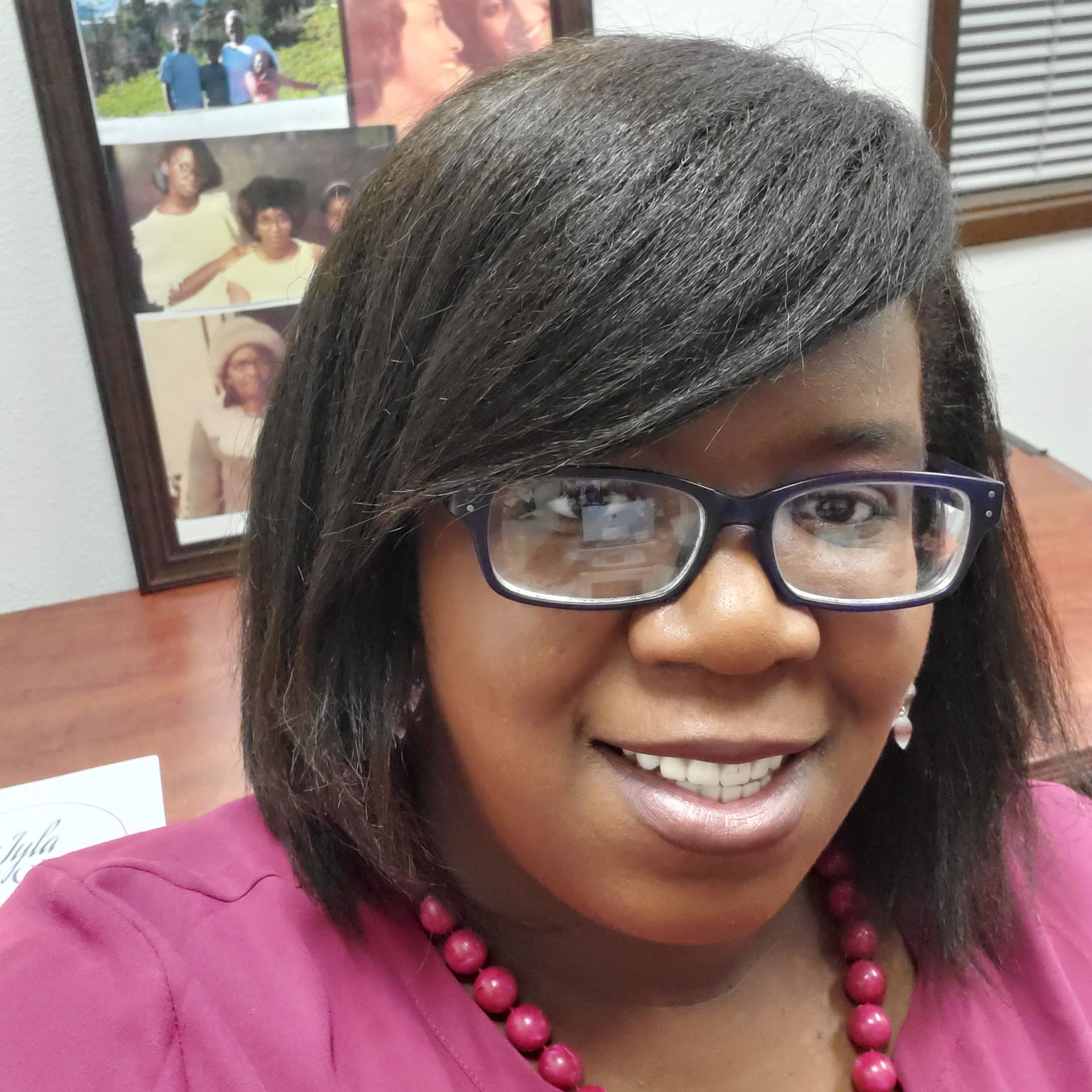 Tanikka Watford Williams has a heart for the community and a love of supply chains and is an advocate for survivors of abuse, and black and brown farmers. Tanikka formed the first African American woman owned produce Distribution Company, as well as a small batch co-packing company. She has worked in wholesale and retail distribution for over 18 years; her experience includes developing markets, logistics center development, distribution center planning, perishable processing, HACCP, and cooperative buying opportunities in urban and rural areas to increase access to healthy and affordable foods, and resources for all community members. She is the creator of National Black Agriculture Awareness Week that got started in July of 2011. She has been recognized as a local hero in the 2012 April Edition of “O” Magazine and has also graced the pages of Family Circle Magazine, Grio, Washington Express, Wall Street Journal, Afro Magazine, ABC News, and the News and Times. In 2010 Tanikka, has had the honor of being recognized by the White House, United Nations, Let's Move!, the US Department of Agriculture, US Health and Human Services, DC Department of Health, and the Metro Washington Public Health Association for her works in communities. She has served on various policy and community councils and has been very active in advocacy and policy work on the east coast and west coast. She has served on councils Co-Chair and the Commerce Chair of the Live Well DC Community Coalition, as well as the Co-Chair of the DC Cancer Policy Taskforce Advisor, and the White House Let’s Move Community Coalition. She has been recognized as a woman of Achievement by the YWCA, and Leader of Excellence by the Urban League. Tanikka has taught classes ranging from Domestic Violence signs to Supply chain Systems Development. Tanikka Watford Williams is the Executive Director of The Moore Wright Group and works daily to put an end to abuse and the cycle of abuse, and be a resource for the community. Since COVID-19 the Moore Wright Group has impacted over 500,000 families nationwide. Tanikka is a wife, and mother of 7, 4 by birth amazing children ages 21, 18, 16, 13, 12, 11, and 10, and is an ordained Pastor.
Tanikka Watford Williams has a heart for the community and a love of supply chains and is an advocate for survivors of abuse, and black and brown farmers. Tanikka formed the first African American woman owned produce Distribution Company, as well as a small batch co-packing company. She has worked in wholesale and retail distribution for over 18 years; her experience includes developing markets, logistics center development, distribution center planning, perishable processing, HACCP, and cooperative buying opportunities in urban and rural areas to increase access to healthy and affordable foods, and resources for all community members. She is the creator of National Black Agriculture Awareness Week that got started in July of 2011. She has been recognized as a local hero in the 2012 April Edition of “O” Magazine and has also graced the pages of Family Circle Magazine, Grio, Washington Express, Wall Street Journal, Afro Magazine, ABC News, and the News and Times. In 2010 Tanikka, has had the honor of being recognized by the White House, United Nations, Let's Move!, the US Department of Agriculture, US Health and Human Services, DC Department of Health, and the Metro Washington Public Health Association for her works in communities. She has served on various policy and community councils and has been very active in advocacy and policy work on the east coast and west coast. She has served on councils Co-Chair and the Commerce Chair of the Live Well DC Community Coalition, as well as the Co-Chair of the DC Cancer Policy Taskforce Advisor, and the White House Let’s Move Community Coalition. She has been recognized as a woman of Achievement by the YWCA, and Leader of Excellence by the Urban League. Tanikka has taught classes ranging from Domestic Violence signs to Supply chain Systems Development. Tanikka Watford Williams is the Executive Director of The Moore Wright Group and works daily to put an end to abuse and the cycle of abuse, and be a resource for the community. Since COVID-19 the Moore Wright Group has impacted over 500,000 families nationwide. Tanikka is a wife, and mother of 7, 4 by birth amazing children ages 21, 18, 16, 13, 12, 11, and 10, and is an ordained Pastor.
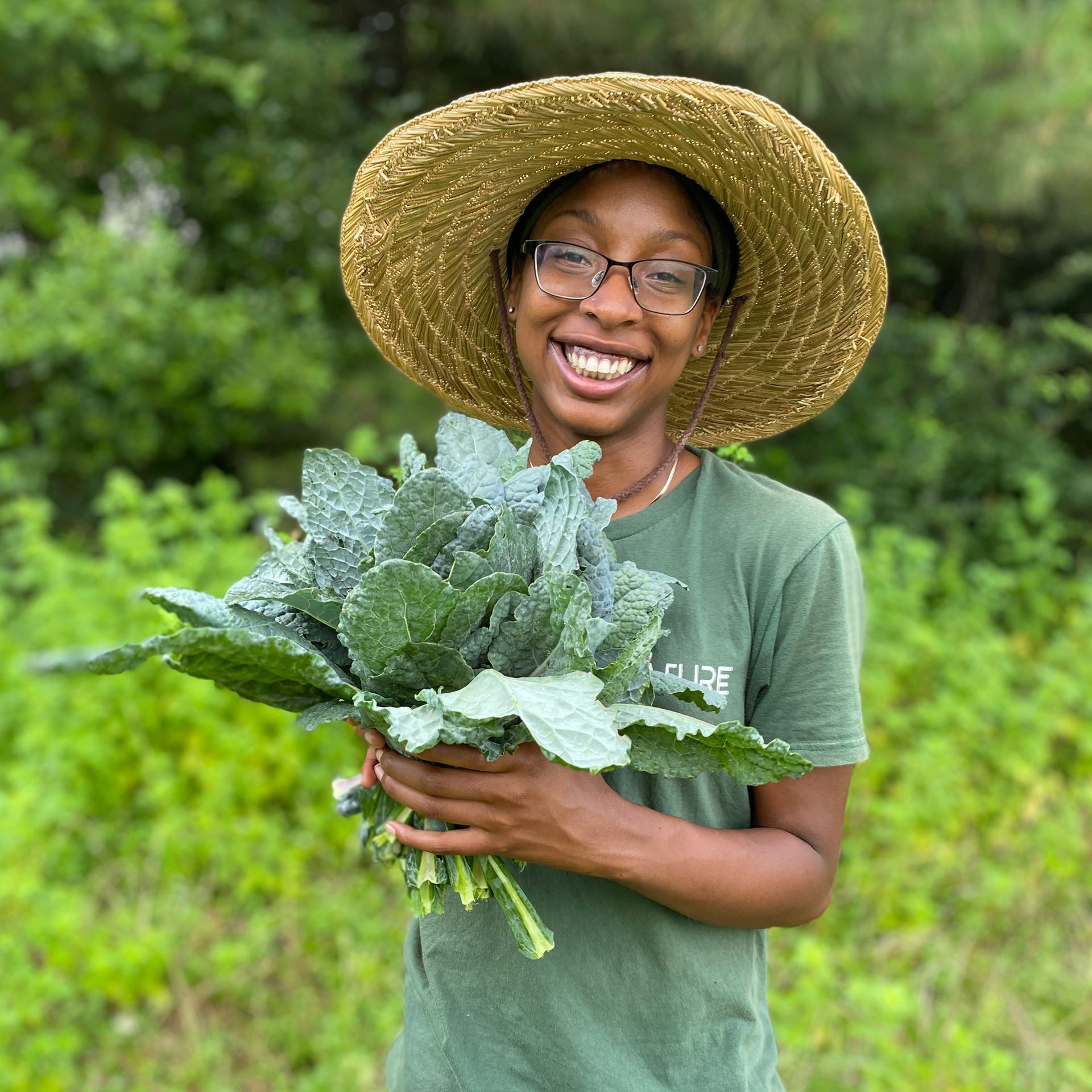 Angelique Taylor and David “Kip” Ritchey are regenerative small-scale farmers who own Smarter By Nature LLC. Angelique and David are certified permaculture designers with a background in environmental science and sociology. Smarter by Nature LLC facilitates sustainable relationships between people and the natural environment by providing fresh food and education to the local community. In December 2017, Smarter by Nature LLC was founded as a means to address the issue of lack of fresh locally grown food in underserved communities. They strive to provide access to affordable quality produce and opportunities for economic sustainability through education, as well as restore the natural environment in the process.
Angelique Taylor and David “Kip” Ritchey are regenerative small-scale farmers who own Smarter By Nature LLC. Angelique and David are certified permaculture designers with a background in environmental science and sociology. Smarter by Nature LLC facilitates sustainable relationships between people and the natural environment by providing fresh food and education to the local community. In December 2017, Smarter by Nature LLC was founded as a means to address the issue of lack of fresh locally grown food in underserved communities. They strive to provide access to affordable quality produce and opportunities for economic sustainability through education, as well as restore the natural environment in the process.
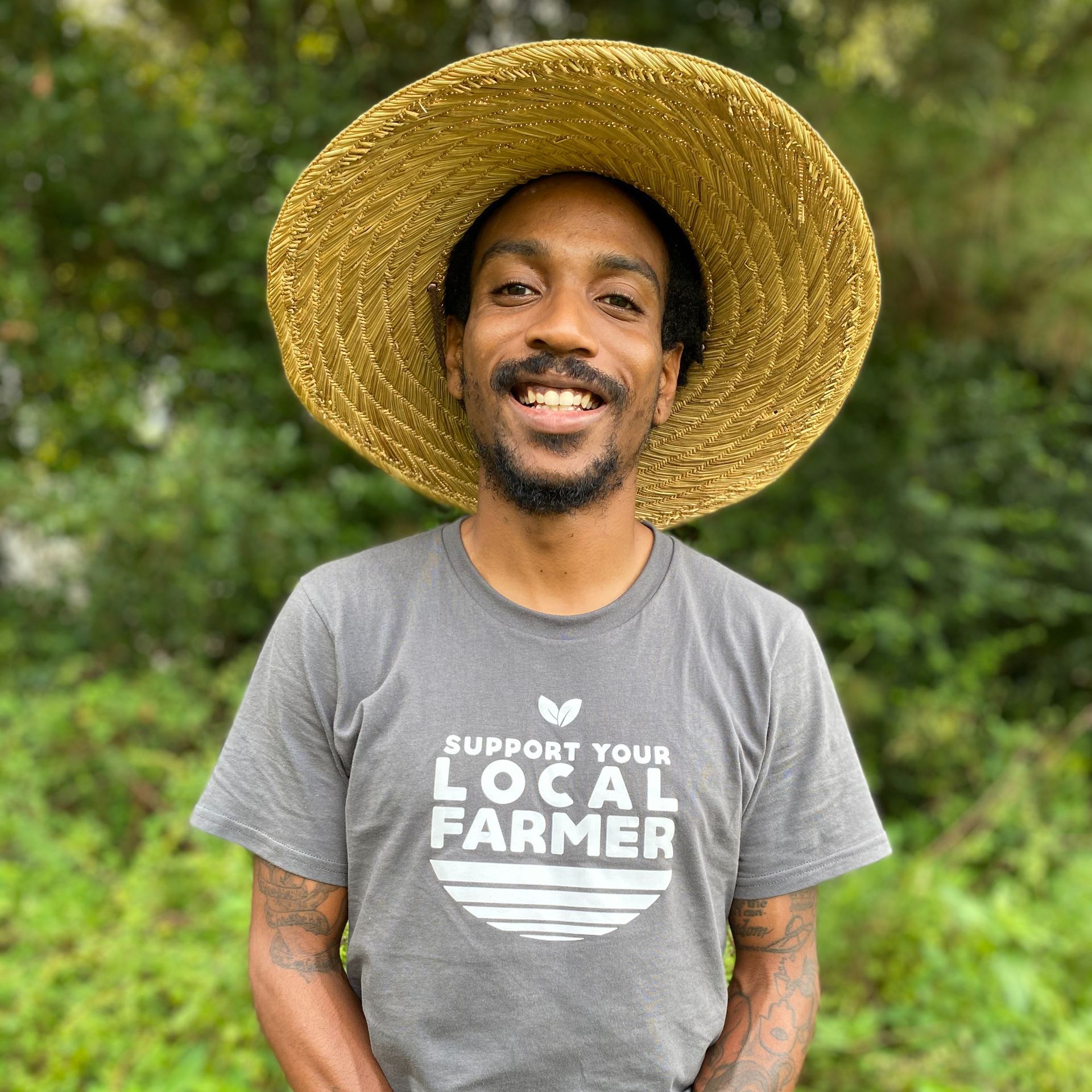 Sustainability is the guiding principle for how they cultivate diversity on their farm, which strengthens the health of the soil, leading to better quality food. They learned from farmers across the world and built their system using practices that align with their ethics of environmental stewardship. Their growing system is based on a combination of sustainable principles and methods which are used to grow seasonal annual vegetables and perennial plants. Through regenerative agriculture practices, Smarter By Nature aims to provide healthy produce as well as share the knowledge of growing food to their local and online community.
Sustainability is the guiding principle for how they cultivate diversity on their farm, which strengthens the health of the soil, leading to better quality food. They learned from farmers across the world and built their system using practices that align with their ethics of environmental stewardship. Their growing system is based on a combination of sustainable principles and methods which are used to grow seasonal annual vegetables and perennial plants. Through regenerative agriculture practices, Smarter By Nature aims to provide healthy produce as well as share the knowledge of growing food to their local and online community.
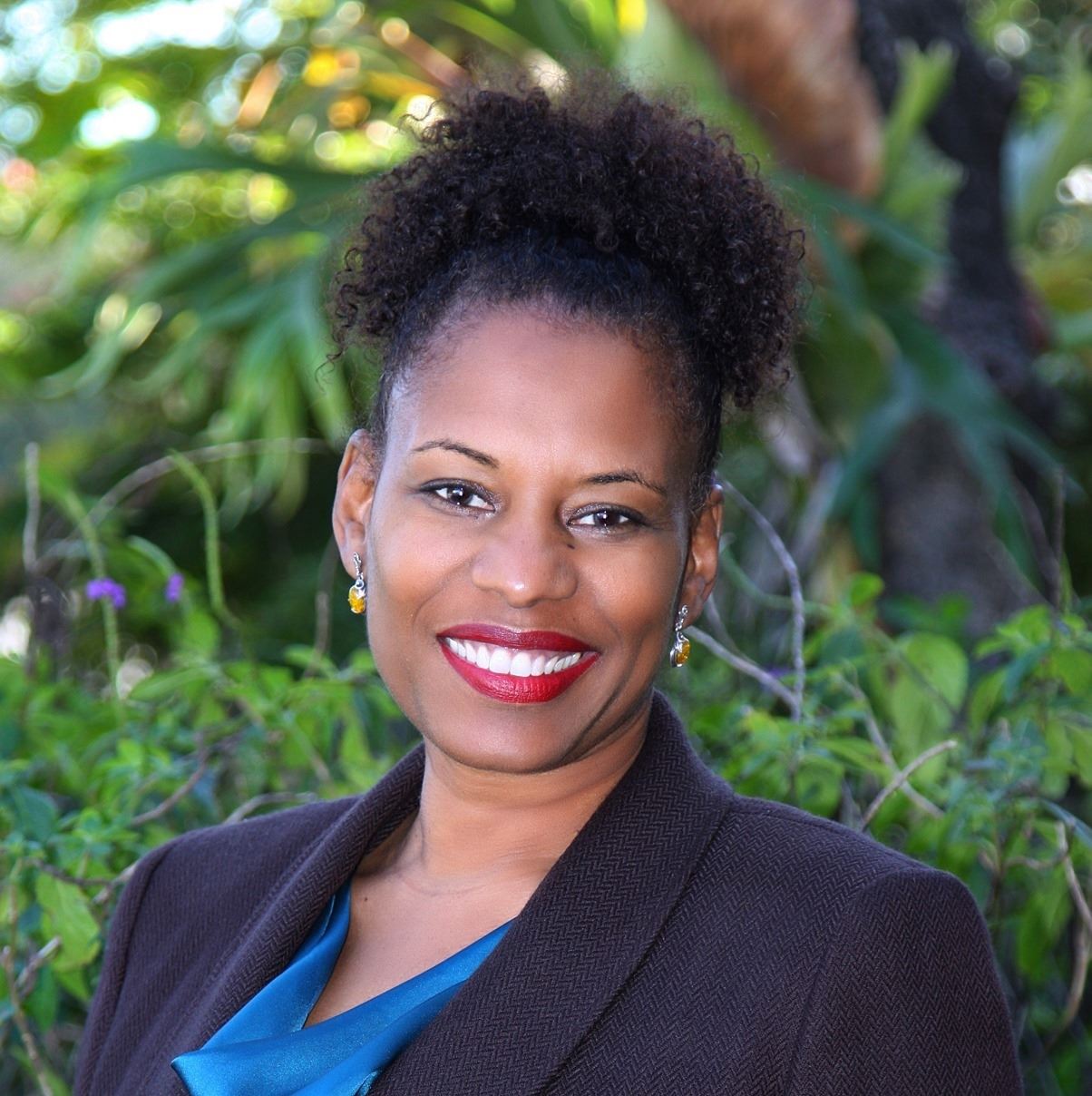 Carla Bristol is the Collaboration Manager at St. Petersburg Youth Farm and the small business owner/gallerist of Gallerie 909. She's a local community advocate with extensive global sales experience. Born in Guyana her family moved to the United States when she was 11 years old. She relocated to Florida from New York in 1996. She's birth mother to two but community mother to dozens of young people in the community. The work of elevating Youth Voices in the food equity conversation has been her commitment over the past 18 months. Youth to the delight of our community are now writing editorials for The Weekly Challenger Newspaper. They have created a project for feeding the houseless population in St. Petersburg with kindness message bags and are inspiring so many others. The program has been featured in the news, on television program and you can learn more about this program at www.stpeteyouthfarm.org.
Carla Bristol is the Collaboration Manager at St. Petersburg Youth Farm and the small business owner/gallerist of Gallerie 909. She's a local community advocate with extensive global sales experience. Born in Guyana her family moved to the United States when she was 11 years old. She relocated to Florida from New York in 1996. She's birth mother to two but community mother to dozens of young people in the community. The work of elevating Youth Voices in the food equity conversation has been her commitment over the past 18 months. Youth to the delight of our community are now writing editorials for The Weekly Challenger Newspaper. They have created a project for feeding the houseless population in St. Petersburg with kindness message bags and are inspiring so many others. The program has been featured in the news, on television program and you can learn more about this program at www.stpeteyouthfarm.org.
Forum Host:
Erica Hall is the incoming Chair of the Florida Food Policy Council and is a community development professional.
Thank you to our sponsors for making this forum possible:
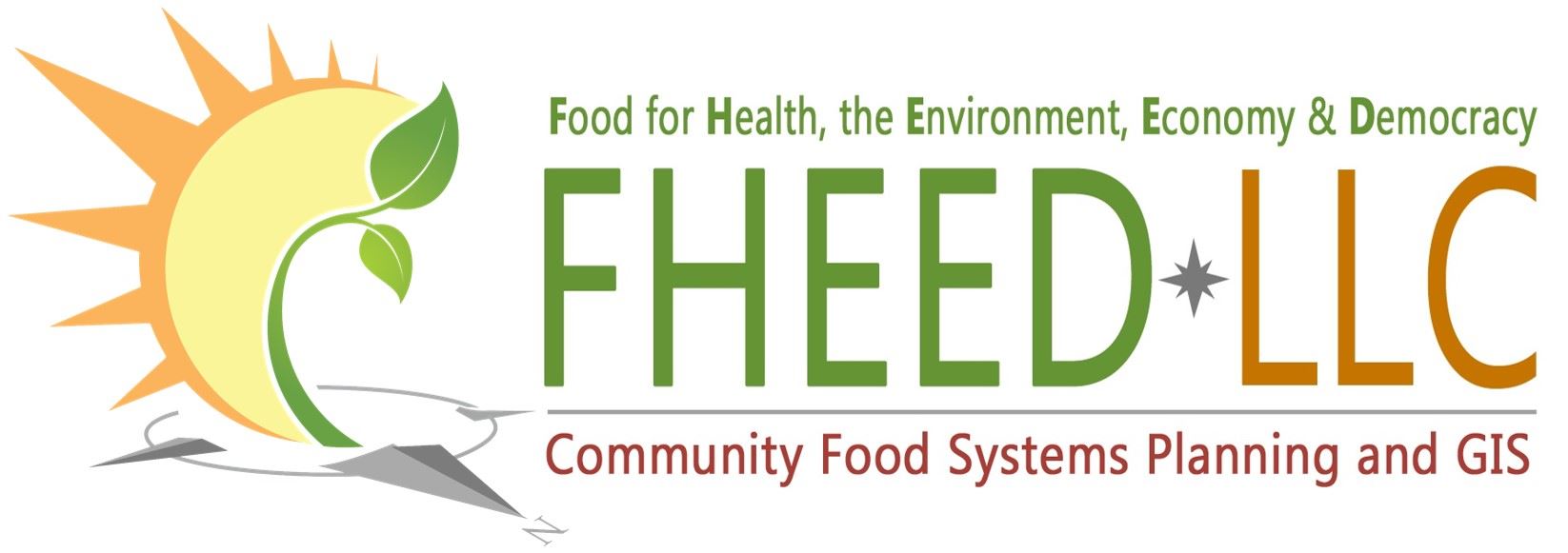 FHEED provides food systems planning, GIS analysis, advocacy, and education about food systems and healthy communities.
FHEED provides food systems planning, GIS analysis, advocacy, and education about food systems and healthy communities.
Contact: Anthony Olivieri, Founder, FHEED LLC
Website: www.FHEED.com
 J Haskins Law, located in Tampa, empowers communities with the legal and risk management tools they need to exercise food sovereignty. The contact for J Haskins Law is Jesse Haskins.
J Haskins Law, located in Tampa, empowers communities with the legal and risk management tools they need to exercise food sovereignty. The contact for J Haskins Law is Jesse Haskins.
Contact: Jesse Haskins, Founder, J Haskins Law
Website: www.jhaskinslaw.com
The Florida Food Forum is a free event. To support our work, please consider becoming a member or making a donation. For questions or more information, contact us at: info@flfpc.org
Disclaimer: The views of the presenters do not represent the views of the Florida Food Policy Council. We are a forum for the offering and sharing of information and encourage diversity and communication within the food system.
